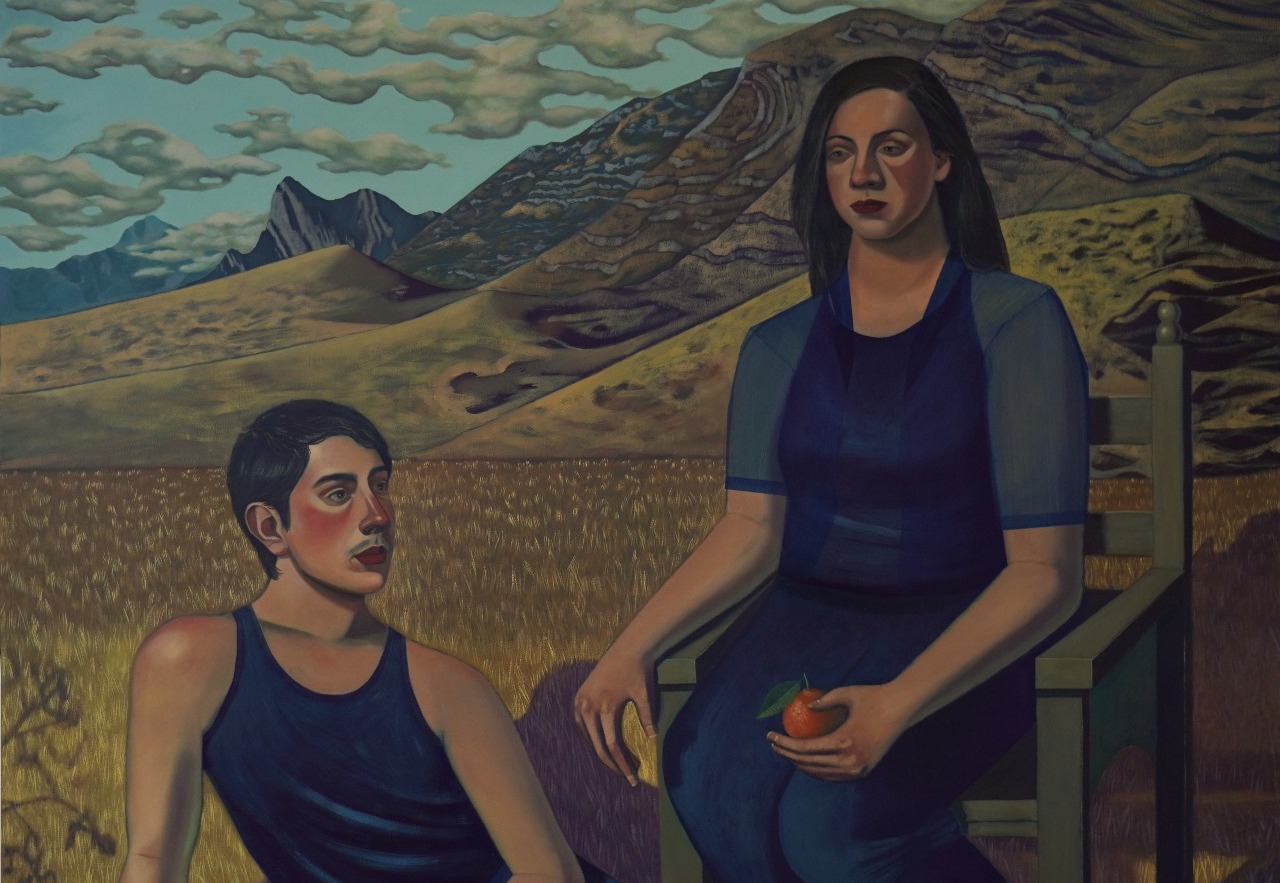
Ángel Cammen
Madre, estoy viviendo con un hombre
Exhibition
-> Sep 12 2024 – Oct 20 2024
Centro Cultural Plaza Fatima presents the solo exhibition by Ángel Cammen under the title: Madre, estoy viviendo con un hombre.
Cammen's artwork is atmosphere and instant, and more precisely, it is the recreation of the atmosphere of a personal instant. With Balthusian gravity, his iconography returns to the portrait and the self-portrait in its most basic meaning, as an introspective psychology that, by revealing and constructing the character, builds itself, crossing the seductive and banal glitter of the narcissistic reflection of a selfie. His paintings are episodes in which the mysterious connection with an experience allows him to freeze its narrative character and transcend the borders of a simple vindicatory act.
Since it deals with identity, the LGBTQ+ discourse necessarily refers to the Self as uniqueness and relativity of oneself, with the consequent narcissistic drift that our image occupies and overflows the center of the scene in which we all observe and are observed. However, beyond its historical relevance and pertinence, the moment in which the LGBTQ+ discourse speaks of the Other, it tends to become a political slogan, a militancy, a proclamation vindicating oneself addressed to others. At this point lies the difficulty of using it as the basis of an aesthetic program: following the queer motto that identifies the personal with the political tends to devour subjectivity, the specific and unrenounceable that each story has, for the sake of a social claim that drowns the peculiar character of individual experience in the breeding ground of a simulacrum. It is reasonable to wonder about the possibility of building an aesthetic proposal that, while reflecting particular subjective truths, advances in the emancipatory claim.
In this context, the incipient work of Ángel Cammen (Nuevo León, 1997), takes hold of a double challenge. On one hand, to deconstruct “the heteronormativity that is in my way of being”, source of the discomfort of an identity presence that perceives itself as incomplete, uncomfortable and damaged, but whose extreme sensitivity allows him not to be indifferent to “a dirty dish” and, on the other hand, the resignification of family relationships, the recognition of the domestic space as the beginning and prolongation of human relationships, as well as the imaginary search for the lost home, that safe shelter of childhood.
— Centro Cultural Plaza Fátima